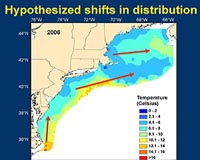 |
Miami (UPI) Nov 4, 2009 Organic animal feed extracted from cactus is emerging as a major growth industry, with China pushing forward into the market as a producer of a patented hog feed extracted from the plant. Cactus is indigenous mostly to the Americas, but various species of the plant are now grown across the world, either in the wild or in nurseries. In China, cactus has earned a huge following as a curative plant alongside traditional Chinese medicine and modern modifications on ancient herbal remedies. The latest cactus product to emerge is a patented animal feed marketed by China Kangtai Cactus Bio-Tech Inc., a U.S.-listed Chinese company based in Harbin, northeast China. China Kangtai engages in the production, research and development, sale and marketing of products derived from cacti in China. A spokeswoman for China Kangtai Cactus Bio-Tech Inc. told United Press International she had no immediate information on the company's plans to compete in Western markets with the innovative animal feed. Kangtai has signed a strategic cooperative production agreement with another Chinese company, Helongjiang Songnan Feed Technology Co. Ltd., to produce the patented animal feed. Studies of animal nutrition and immunology indicate that cactus-derived feed provides nutrition, boosts immune systems and prevents inflammatory illnesses, the company said. Production plans include cattle feed, fish feed and hog feed -- and a poultry feed by 2010. Kangtai says it has implemented stringent quality controls of raw cactus materials that exclude chemicals or pesticides in planting and processing. Kangtai produces nutraceuticals, nutritional food, liquor, beer and wine, even a "cigarette" and cactus raw and intermediate materials. Kangtai CEO Jinjiang Wang said, "China is the world's largest hog producing country, having slaughtered 625 million hogs in 2008, compared to approximately 100 million hogs in the U.S. China also has the world's largest consumer base for pork consumption." He said more than 65 percent of all meat consumed in China is pork. The cactus hog feed market shows huge growth potential. "Hog producers are constantly seeking ways to improve the health and productivity of their livestock. Our cactus products are proven to enhance pork production," Wang said. Based on scientific studies of animal nutrition and immunology, he said, cactus-derived hog feed provides nutrition, boosts immune systems and prevents sepsis and inflammatory illnesses. Studies have shown that Kangtai's cactus feed substantially increases productivity, quality and health of hog herds thereby improving the quality of pork, Wang added. China Kangtai was awarded patents from China's State Intellectual Property Office in 2008. Industry analysts said the cactus hog feed could pose a challenge to animal feed producers in the Western Hemisphere. China Kangtai has already drawn attention from investors in the West. Share This Article With Planet Earth
Related Links Farming Today - Suppliers and Technology
 North Atlantic Fish Populations Shifting As Ocean Temperatures Warm
North Atlantic Fish Populations Shifting As Ocean Temperatures WarmWoods Hole MA (SPX) Nov 04, 2009 About half of 36 fish stocks in the Northwest Atlantic Ocean, many of them commercially valuable species, have been shifting northward over the last four decades, with some stocks nearly disappearing from U.S. waters as they move farther offshore, according to a new study by NOAA researchers. Their findings, published in the journal Marine Ecology Progress Series, show the impact of ... read more |
|
| The content herein, unless otherwise known to be public domain, are Copyright 1995-2009 - SpaceDaily. AFP and UPI Wire Stories are copyright Agence France-Presse and United Press International. ESA Portal Reports are copyright European Space Agency. All NASA sourced material is public domain. Additional copyrights may apply in whole or part to other bona fide parties. Advertising does not imply endorsement,agreement or approval of any opinions, statements or information provided by SpaceDaily on any Web page published or hosted by SpaceDaily. Privacy Statement |